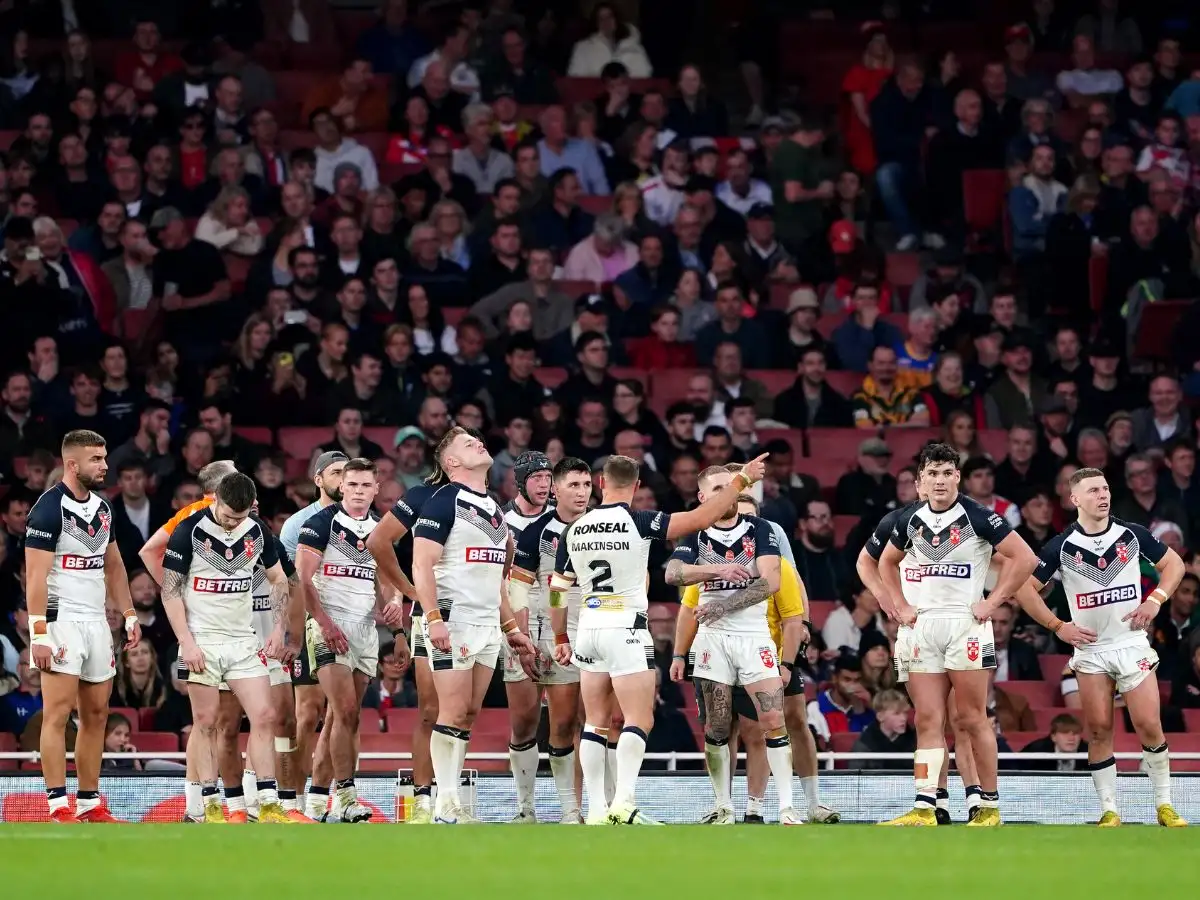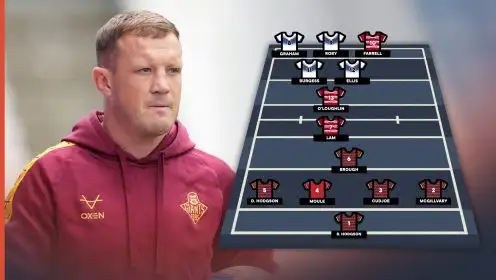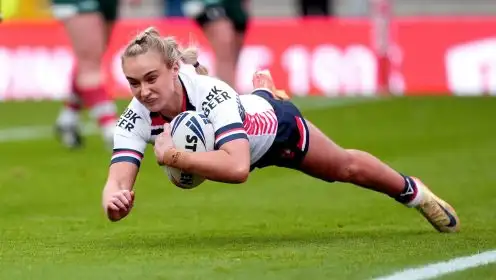The biggest problem for England is out of their control

It was another case of “what if” for England at the Rugby League World Cup, as they bowed out in the semi-finals at the Emirates Stadium.
In the context of the burgeoning international rugby league scene, with arguably the most realistic contenders to win the tournament for many years if not ever, the golden point defeat to Samoa was a blow.
The deflation perhaps wasn’t felt on the scale it was back in 2013, when New Zealand’s Shaun Johnson broke hearts at Wembley, though the reality of failure was certainly reflected by an emotional and dejected Shaun Wane in his post-match press conference.
The stature and profile of that tournament felt greater and more significant, maybe due to the London Olympics the previous year and the relative optimism around the licensing era of the sport, to the point where a World Cup final and possible win then might have been the catalyst for something greater.
A final this year would have had some cut through, though that opportunity now rests with the wheelchair and women sides.
The geographical challenge for England
For the men, the challenge now is how they can compete and impose themselves in the new world of international rugby league which is increasingly centred around the southern hemisphere.
Their isolation geographically is highlighted by the World Cup quarter-final line-up, where England were the only European side.
At the elite level of the international game, there are seven truly competitive nations – Australia, England, Fiji, New Zealand, Papua New Guinea, Samoa, Tonga – with the eighth quarter-finalist, Lebanon, on the cusp.
The problem for England is that all those nations are predominantly made up of players based in the southern hemisphere, meaning the logistics for regular international matches against any of them is difficult.
England need northern hemisphere competition
England cannot find the competition they need in the northern hemisphere. The Exiles and Combined Nations concept have been thrown together to at least try and provide something, but neither have captured the imagination of the public or provided the intensity of a full international match.
Even with a presence in Super League for 17 years, France still don’t seem any closer to providing genuine competition. The next World Cup could provide France a boost, though either way it’s out of England’s hands.
The only way England can play more international rugby league of sufficient quality to grow interest and commercial value, is against the southern hemisphere nations which presents the problem.
At present, we have no idea when or where England’s next game will be.
Talks are ongoing regarding the European Championship, though England will never be anything but heavy favourites for that. Suggestions that England Knights could take England’s place in the competition if they are away on tour to ensure a regular calendar have been hampered because the other nations feel it would devalue it.
Four Nations return?
Revitalising the relatively successful Four Nations concept should be a priority, but given the southern hemisphere teams can play enough international matches at a competitive level without needing to fit around England’s schedule, or the logistics and costs of travelling, means motivation might be low.
England have hosted this World Cup and only faced two of the top eight nations – and none of their “big three” counterparts. It seems a waste to think of the costs involved in hosting all these teams for this long that that has happened.
Rugby League World Series

Could a “World Series” type event work? So held every few years in either hemisphere, involving either six or eight nations in a round robin format with a final between the top two at the end. Games could be played over a six week period on weekends, similar to a World Cup programme, but ensures that all the games are competitive and meaningful.
So England could go up against five (or seven) of those nations above in consecutive weeks in a two-month dedicated international rugby league window.
England are going to need something like that to give them the games they need. The southern hemisphere nations can do one-off tests, England cannot find the opposition to do that, especially not mid-season, unless there is a significant change in attitude amongst the NRL and Super League clubs.
The only other way you could see England being represented, is if they are able to get enough southern hemisphere based players to form a select side – though that goes against the essence of international sport really.
While the theory is that international rugby league is key to the sport’s growth, the fact is that England are isolated by geography in a world of soaring travel costs and generating local competition is both out of their hands and at best, decades away.
More World Cup content
George Williams: Semi-final defeat will live with me until next World Cup
Mike Cooper: I’ve no doubt England will win a World Cup in the future
Lee Radford hopeful of Samoa causing an upset against Australia in World Cup final
FOLLOW: Keep up with all the latest on the Love Rugby League mobile app and podcast



